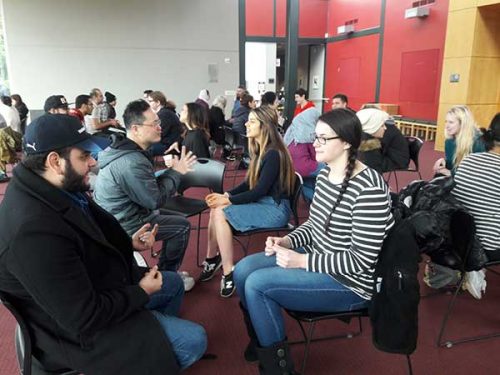Cultural anthropology

Speed-culturing: Anthropology and ESOL students participate in cultural exchange conversations
Also called ethnology, cultural anthropology focuses on the study of contemporary cultures and how societies change and develop over time. Ethnologists collect data on the way people in different societies think, feel, perceive, and behave. They note and compare how different kinds of social organization lead to variations in role, status, or identity. The study of spirituality, art, and other cultural expressions also falls under this category.
Ethnographers, a kind of ethnologist, spend an extended period (usually six months or a year) living with, talking to, and observing members of a specific culture or group within a culture. They gain important insight into the way the society functions and how members of the culture view the world.
After completing their fieldwork, ethnographers write up an account of their firsthand study of a human group in a specific place and situation, called an ethnography. Ethnography is a uniquely anthropological practice. Some ethnographers strive to be very holistic and complete in their accounts. There is a new emphasis on the impacts of colonialism, globalization, and the reflexivity on the power structures inherent in who studies whom and why. Others focus on specific aspects of the culture, such as the effect of culture change, the construction of gender roles, or ritual aspects of healing and curing. Ethnography and ethnographic criticism focus on detail, respect the context in making any generalizations and fully recognize persistent ambiguity or multiple possibilities in any situation.
While many cultural anthropologists focus on cross-cultural research, others are also interested in applying anthropological concepts to solve practical problems. They may work in settings outside of traditional academia, such as business, government agencies, or public health organizations.
PCC classes in Cultural Anthropology
- ATH 103: Introduction to Cultural Anthropology
- ATH 232: Indigenous Cultures and Communities of the U.S. and Canada
- ATH 234: Death and Dying in Cross-Cultural Perspective
View the current anthropology class schedule.
